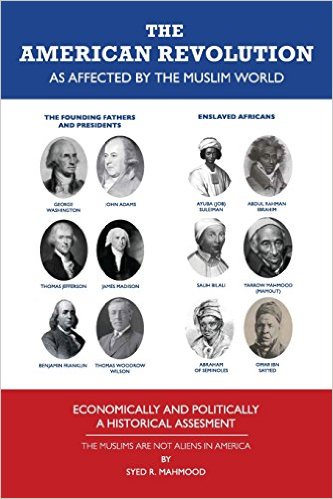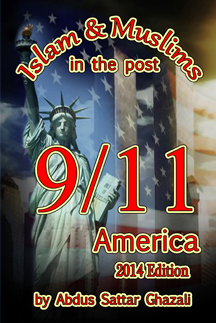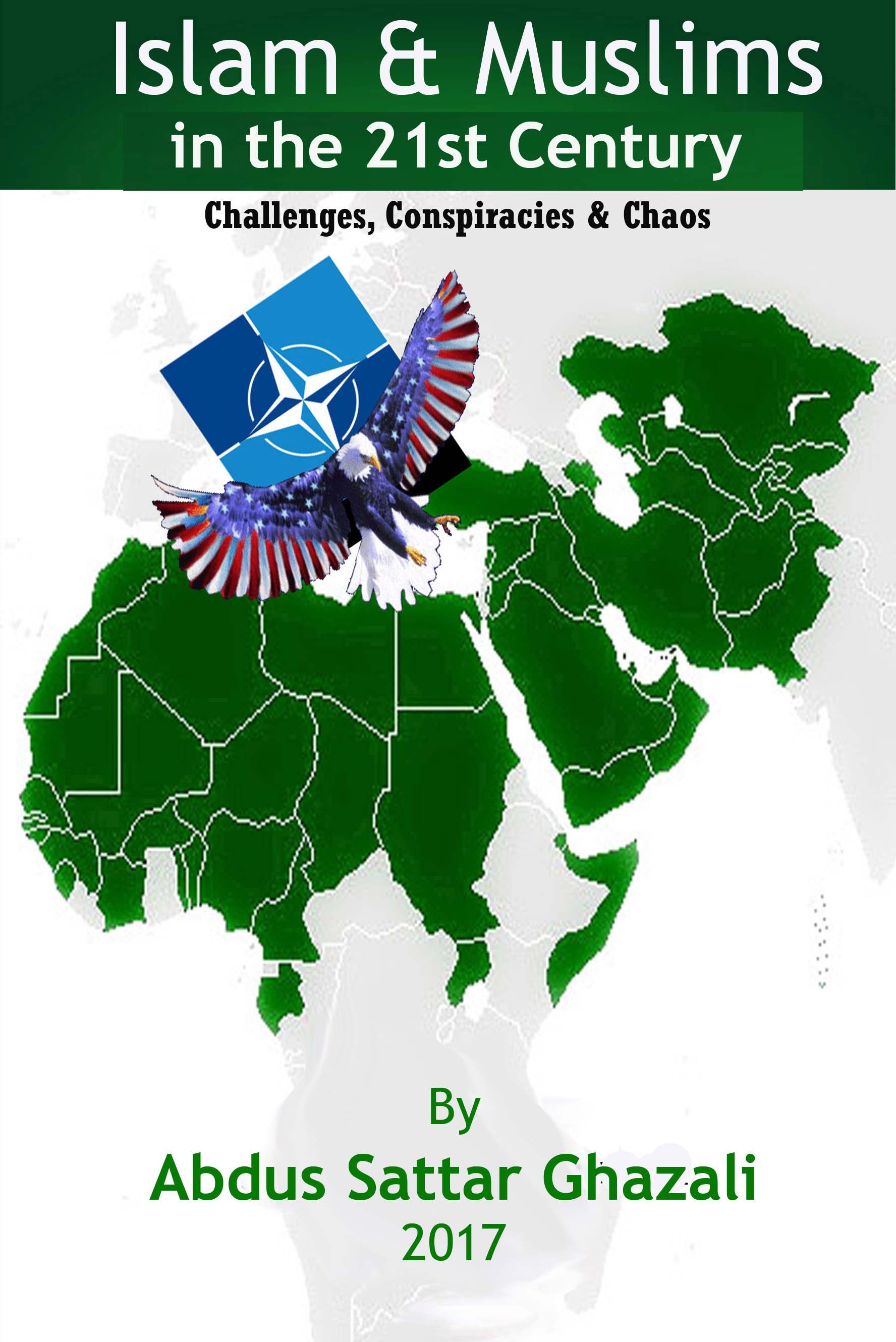October 1, 2020
Armenia, Azerbaijan reject peace talks on Nagorno-Karabakh as fighting continues
By Abdus Sattar Ghazali
Armenia and Azerbaijan vowed to keep fighting and rejected international calls for negotiations on Wednesday as clashes over the disputed Nagorno-Karabakh region raged for a fourth day.
Armenian Prime Minister Nikol Pashinyan said on Tuesday that the atmosphere was not right for talks with Azerbaijan. Azerbaijan’s president Ilham Aliyev has also rejected any possibility of talks with Armenia.
Baku and Yerevan have ignored mounting international pressure for a ceasefire, as fears grow that the conflict could escalate into all-out war and draw in regional powers like Turkey and Russia.
Armenian and Azerbaijani forces are engaged in the heaviest fighting in years over Nagorno-Karabakh that broke away from Azerbaijan in the 1990s during the collapse of the Soviet Union.
The long-simmering conflict erupted on Sunday with the two sides trading heavy fire and blaming each other for the outbreak of violence.
The confirmed death toll surpassed 100 people including civilians Wednesday and both sides are claiming to have inflicted heavy losses on opposing forces.
Armenia, Azerbaijan reject peace talks
Armenia is not ready for Russia-mediated peace talks with Azerbaijan, Prime Minister Nikol Pashinyan said Wednesday, according to the Agence France-Presse (AFP).
He also noted that his country is not considering deploying peacekeepers in Nagorno-Karabakh, Russian news agencies reported.
Azerbaijani President Ilham Aliyev told Russian state TV channel Russia 1 that Baku is committed to negotiating a resolution but that Armenia is obstructing the process.
“The Armenian prime minister publicly declares that Karabakh is (part of) Armenia, period. In this case, what kind of negotiating process can we talk about?” Aliyev said. He added that according to principles brokered by the Minsk Group, which was set up in 1992 by the Organization for Security and Co-operation in Europe (OSCE) to resolve the conflict, “territories around the former Nagorno-Karabakh autonomous region should be transferred to Azerbaijan.”
Aliyev noted that if Pashinyan says “that Karabakh is Armenia and that we should negotiate with the so-called puppet regime of Nagorno-Karabakh, (he is) trying to break the format of negotiations that has existed for 20 years.”
Pashinyan, in turn, told the broadcaster that “it is very hard to talk about negotiations ... when specific military operations are underway.” He said there is no military solution to the conflict and called for a compromise.
There are four UNSC resolutions and two U.N. General Assembly (UNGA) resolutions, as well as innumerable calls by international organizations, that demand the withdrawal of the occupational Armenian forces from Nagorno-Karabakh and seven other occupied regions of Azerbaijan.
Russia offers to host talks between Azerbaijan, Armenia
Russian Foreign Minister Sergei Lavrov on Wednesday said Moscow was willing to host the foreign ministers of Armenia and Azerbaijan for talks.
According to a Russian Foreign Ministry statement, Lavrov said Russia would continue to work both independently and together with other representatives of the Minsk group of the Organization for Security and Cooperation in Europe (OSCE) to mediate the conflict between Azerbaijan and Armenia.
"The development of the situation in the zone of the Nagorno-Karabakh conflict was discussed (with Azerbaijani and Armenian foreign ministers). The Russian side expressed serious concern over the ongoing large-scale hostilities. A call was made for an immediate cease-fire and de-escalation of tensions, as well as for the prevention of provocative and military rhetoric," the statement said.
Russia, which maintains close military ties with Armenia, including a military base, has repeatedly called for an immediate cease-fire after the flare-up erupted four days ago.
Armenian Prime Minister Nikol Pashinian said that Armenia does "not need yet to use the potential of the Russian base, however, in case of necessity all legal grounds exist."
We won't accept Azerbaijani control in Nagorno-Karabakh, Macron says
France's president on Wednesday voiced solidarity with Armenia over Armenian-occupied Nagorno-Karabakh.
"I have noticed the political statements made by Turkey (in favor of Azerbaijan), which I find to be inconsiderate and risky," Emmanuel Macron said in a news conference during a visit to Latvia.
"France is concerned by the warlike messages from Turkey which is in favor of Azerbaijan's reconquering Nagorno-Karabakh. And that we won't accept it," he added, not mentioning that the region is internationally recognized as belonging to Azerbaijan.
Nagorno-Karabakh issue can only be solved if Armenia's occupation ends
Turkish President’s Spokesperson Ibrahim Kalın said in an interview to Sabah daily on Wednesday, that the only solution to the recent tension between Azerbaijan and Armenia is the end of the illegal occupation of the Nagorno-Karabakh.
“Turkey will stand together with Azerbaijan, both in politics and other fields. The issue of Nagorno-Karabakh will only end if the Armenian occupation comes to an end. Without this, the cease-fire and negotiations will only serve as temporary solutions,” he said.
“Unfortunately, the fact that the Minsk Group has failed to produce a solution for this issue for nearly 30 years shows that this problem is crucial. A cease-fire without discussing the end of Armenian occupation will mean repeating what happened for the last 30 years,” Kalın underlined.
Co-chaired by France, Russia and the United States, the Minsk Group, set up in 1992 by the Organization for Security and Co-operation in Europe (OSCE), was formed to find a peaceful solution to the conflict but to no avail. A cease-fire, however, was agreed upon in 1994.
'Minsk Group not neutral'
“The Minsk Group is not neutral in the issue of Azerbaijan and Armenia. There are two big Armenian diasporas in the world, one in France and one in the United States. These lobbies are effective in relative countries’ policies. It is very hard to say that France and the U.S. act without being under influence of those diasporas. We expect France to undertake a neutral, constructive role. The international community should clearly see how crucial it is to end the Armenian occupation and find a solution. The Minsk Group, especially, should work on the solution with a neutral stance,” he said.
'We can discuss Azerbaijan-Armenia tensions with Russia'
Kalın also said that Turkey is willing to discuss the tensions in the Caucasus with Russia.
“As Russia has a serious influence over Armenia and has also military forces stationed there, we can also discuss this issue with them. As a member of the Minsk Group, Russia also has responsibilities. Saving the day should not be the focus. We should take steps to end this occupation if we want to have a future-proof vision,” he said.
UN Security Council urges speedy halt to Nagorno-Karabakh
fighting as Armenia accuses Turkey of shooting down its fighter jet
By Abdus-Sattar Ghazali
The U.N. Security Council called on Armenia and Azerbaijan Tuesday to immediately halt fighting over Nagorno-Karabakh and urgently resume talks without preconditions.
"The Security Council members voiced support for the call by the Secretary-General on the sides to immediately stop fighting, de-escalate tensions and return to meaningful negotiations without delay," UNSC chairman Abdou Abarry, representing Niger, said in a statement.
Abarry added that the Council condemned the use of force and expressed concern about the clashes in the area.
The council expressed full support for "the central role" of the Organization of Security and Cooperation in Europe, which has been trying to mediate peace talks, and urged the sides "to work closely with them for an urgent resumption of dialogue without preconditions."
Five European council members France, Germany, Britain, Belgium and Estonia asked for the closed council meeting following the upsurge in fighting.
Nearly 100 people, including civilians, have died in three days of fighting over the disputed mountainous region, BBC said adding: The fighting that started three days ago now appears to be spilling out of Nagorno-Karabakh, with Armenia and Azerbaijan trading accusations of direct fire into their territories.
Armenia accuses Turkey of shooting down its fighter jet
As fighting enters a third day, Armenia said one of its warplanes was shot down Tuesday by a fighter jet from Turkey, killing the pilot, in fighting over Nagorno-Karabakh.
Armenian officials said an SU-25 from its air force was shot down in Armenian airspace by a Turkish F-16 fighter jet that took off from Azerbaijan, and the pilot was killed.
The allegation of downing the jet was "absolutely untrue," said Fahrettin Altun, communications director for Turkey's president.
Azerbaijani officials called it "another fantasy of the Armenian military propaganda machine."
Turkish Foreign Minister Mevlut Cavusoglu said Turkey is "by Azerbaijan's side on the field and at the (negotiating) table."
Cavusoglu said the international community must defend Azerbaijan's territorial integrity in the same way it defended the integrity of Ukraine and Georgia.
"They are holding Azerbaijan, whose territories have been occupied, on an equal footing with Armenia. This is a wrong and unjust approach," Cavusoglu said after a visit to Azerbaijan's Embassy in Ankara.
Biden calls on Turkey to stay away
Democratic presidential candidate and U.S. senator Joe Biden in a tweet message on Tuesday said Turkey should "stay out of" the conflict between Armenia and Azerbaijan over the Nagorno-Karabakh region.
Quoting a statement from Turkish President Recep Tayyip Erdoğan calling on Armenia to withdraw from what he called Azerbaijan's lands, Biden urged U.S. President Donald J. Trump to "call the leaders of Armenia and Azerbaijan immediately to de-escalate the situation."
Biden Tweet: With casualties rapidly mounting in and around Nagorno-Karabakh, the Trump Administration needs to call the leaders of Armenia and Azerbaijan immediately to de-escalate the situation. It must also demand others like Turkey stay out of this conflict.
Caucasus conflict heralds clash of the titans
Azerbaijan's military offensive on the Armenia-controlled Nagorno Karabakh enclave threatens to spiral quickly into a wider regional conflict, one that pits Russia and Turkey in a volatile proxy theater, the Asia Times said Tuesday.
With each powerful regional actor aligned on opposed sides of the fighting, the deeper contest between Moscow and Ankara is now set to trigger what some analysts foresee as a monumental "clash of the titans."
Kremlin spokesperson Dmitry Peskov said Russia was monitoring the situation closely and that the current priority was to "stop the hostilities, not to deal with who is right and who is wrong."
Tehran said it was ready "to use all of its capacities to establish a ceasefire and start talks between the two sides," with foreign ministry spokesman Saeed Khatibzadeh calling for "an immediate end to the conflict."
But Turkish President Recep Tayyip Erdogan demanded Armenia end its "occupation" of Karabakh, whose ethnic Armenians declared a breakaway republic following a war in 1991.
"The time has come for the crisis in the region that started with the occupation of Nagorno Karabakh to be put to an end," Erdogan said. "Now Azerbaijan must take matters into its own hands."
Amid this dynamic situation, the stage is now set for a heated competition between regional rivals, the Asia Times argued.
The South Caucasus has long been a region of contest with a history of submission and subjugation by larger powers. Over the centuries, the Persians, Ottoman and Russian empires have all fought for conquest and control of the area.
Armenia, Azerbaijan clash over Nagorno-Karabakh for a second day
By Abdus Sattar Ghazali
Armenia and Azerbaijan fought over Nagorno-Karabakh for a second day Monday, with both sides blaming each other for resuming the attacks that reportedly killed and wounded dozens, according to the media reports.
The heavy fighting broke out Sunday in Nagorno-Karabakh that lies within Azerbaijan but has been under the control of ethnic Armenian forces backed by the Armenian government since 1994.
Nagorno-Karabakh — a region in the Caucasus Mountains about 4,400 square kilometers (1,700 square miles) is 50 kilometers (30 miles) from the Armenian border. Armenia also occupies some Azerbaijani territory to link Nagorno-Karabakh with it.
The Associated Press quoted a statement by Armenia's Foreign Ministry saying: “Turkish military experts are fighting side by side with Azerbaijan, who are using Turkish weapons, including UAVs and warplanes." The situation “clearly indicates” that people in Nagorno-Karabakh are fighting against "a Turkish-Azerbaijani alliance,” the statement added.
Both Armenia and Turkey accused each other of recruiting foreign mercenaries.
Omer Celik, spokesman for Turkish President Recep Tayyip Erdogan’s ruling party, denied reports that Turkey had sent arms or foreign fighters to Azerbaijan. “Armenia is disturbed by Turkey’s solidarity with Azerbaijan and is producing lies against Turkey,” Celik tweeted.
Erdogan has reiterated Turkey’s support for Azerbaijan and said Armenia’s immediate withdrawal from the region was the only way to ensure peace. "All other impositions and threats will not only be unjust and unlawful, but will continue to indulge Armenia,” he said.
Erdogan criticized France, the U.S. and Russia — the three chairs of the so-called Minsk group that was set up in 1992 to resolve the Nagorno-Karabakh conflict — saying they had failed to resolve the issue for 30 years.
“They have done their best not to solve this issue. And now they come and counsel and issue threats. They say ‘is Turkey here, is the Turkish military here?’" Erdogan said.
“Whose lands were occupied? Azerbaijan’s lands. ... Nobody asks for (Armenia) to account. Azerbaijan has been forced to take the matters into its own hands," he added.
The Russian Connection
Azerbaijan has never forgotten its 1990s humiliation at the hands of Armenia. Now stronger than its sworn enemy, and emboldened by Turkish support, Baku’s assertiveness is creating a headache for Moscow, says Paul Robinson, a professor at the University of Ottawa. He writes about Russian and Soviet history, military history, and military ethics.
One explanation for the recent flare-up may be that Azerbaijan feels much stronger than it did when it suffered its defeat at the hands of Armenia 30 years ago, Robinson said adding: The Azeri economy, benefitting from substantial oil reserves, has outgrown that of its neighbor, as has the Azeri population – there are 10 million Azeris compared with only three million Armenians. Azerbaijan has invested heavily in its military and may feel much more confident about its prospects should matters escalate further.
Another explanation may be the support Azerbaijan is receiving from its primary ally – Turkey. Following this weekend’s clashes, Turkish president Recep Erdogan called on ‘the entire world to stand with Azerbaijan in its battle against invasion.’ Such Turkish support may embolden the Azeri leadership not to back down if things begin to get out of hand, Robinson said in an article published by Russian TV (RT) news Monday.
Russia has officially adopted a position of neutrality in the Nagorno-Karabakh dispute, and called on all sides to settle their differences peacefully. This has meant supporting the status quo. Since that status quo favors Armenia, in reality this position has meant supporting Armenia, a posture reinforced by Armenia’s membership of various multilateral initiatives sponsored by Russia, notably the Collective Security Treaty Organization and the Eurasian Economic Union, according to Robinson
The conflict in Nagorno-Karabakh thus indirectly pits Russia against Turkey. Nagorno-Karabakh is not the only location where Russian and Turkish proxies are clashing. In Syria, Russia has been backing the government of Bashar Assad while Turkey has been propping up the anti-Assad rebels in Idlib province. And in Libya, Russia is said to support rebel general Khalifa Haftar, while Turkey recently sent substantial aid to the government forces in Tripoli to help drive Haftar’s troops away from the capital.
Consequently, whenever Russia and Turkey have clashed in recent years, the Russian government has sought to rapidly calm things down. Unsurprisingly, it is now taking the same approach regarding the situation in Nagorno-Karabakh. On the one hand, Russia needs to stand by its Armenian ally. On the other hand, it wishes to avoid an escalation which would bring it into conflict with Turkey. A restoration of the ceasefire and the status-quo ante thus serves it best. For now, this approach may work. In the longer term, though, economic and demographic considerations mean that power in the Southern Caucasus will likely continue to shift in Azerbaijan’s favor. As it does, Russia’s balancing act vis-à-vis Turkey could become increasingly difficult to maintain, Robinson concluded.
In a video conference on Monday, Azeri President Ilham Aliyev told UN General Secretary Antonio Guterres that the question of Nagorno-Karabakh should be resolved in line with UN Security Council resolutions guaranteeing the territorial integrity of Azerbaijan, and called for the urgent withdrawal of Armenian troops from “occupied territories.”
Fighting flares between Armenia and Azerbaijan over disputed Nagorno-Karabakh
By Abdus Sattar Ghazali
The worst clashes since 2016 have raised the specter of a new war between Azerbaijan and Armenia, which have been locked for decades in a territorial dispute over the Armenia-backed breakaway region of Nagorno-Karabakh.
A major confrontation between Muslim Azerbaijan and Christian Armenia threatened to embroil regional players Russia and Turkey, according to Al Jazeera.
Amid the rising tensions, the United States, Russia, Turkey, France and others have reacted to Sunday’s fighting over the disputed region of Nagorno-Karabakh.
The US State Department said it contacted the two countries “to urge both sides to cease hostilities immediately, to use the existing direct communication links between them to avoid further escalation, and to avoid unhelpful rhetoric and actions.”
France, a co-chair of the OSCE Minsk Group mediating between Armenia and Azerbaijan in a bid to find a peaceful solution to the decades-old Nagorno-Karabakh conflict, called on Yerevan and Baku to end hostilities and immediately restart dialogue.
Fellow Minsk Group co-chair Russia also called for an immediate ceasefire. “We are calling on the sides to immediately halt fire and begin talks to stabilize the situation,” the Russian foreign ministry said.
Russian President Vladimir Putin discussed the military flareup with Armenian Prime Minister Nikol Pashinyan and called for “an end to hostilities”. Foreign Minister Sergey Lavrov, meanwhile, was in intensive talks with his Turkish counterpart to reach a return to negotiations.
Turkey
Azerbaijan’s ally Turkey has blamed Armenia for the flare-up and promised Azerbaijan its “full support”.
“While I call on the Armenian people to take hold of their future against their leadership that is dragging them to catastrophe and those using it like puppets, we also call on the entire world to stand with Azerbaijan in their battle against invasion and cruelty,” Turkish President Recep Tayyip Erdogan said on Twitter, adding Turkey will “increasingly continue” its solidarity with Baku.
Earlier, his spokesman Ibrahim Kalin accused Armenia of violating a ceasefire with Azerbaijan “by attacking civilian locations”.
At the same time, Turkish Defense Minister Hulusi Akar said recent hostilities could end “throw[ing] the region into fire” while promising Ankara’s backing to Baku. “The biggest obstacle to peace and stability in the Caucasus is the hostile stance of Armenia, and it must immediately turn back from this hostility that will send the region into fire,” Akar said. “We will support our Azerbaijani brothers with all our means in their fight to protect their territorial integrity,” he added.
Relations between the two former Soviet republics have been tense since 1991 when Armenian military occupied the Upper Karabakh, or Nagorno-Karabakh region, an internationally recognized territory of Azerbaijan.
Republic of Artsakh
With the support of Armenia, Nagorno-Karabakh enclave was declared in 1991 as the Republic of Artsakh which has a population of around 145,000 people. Although internationally recognized as Azeri territory, Baku has had no control over the region since 1988.
The predominantly Armenian-populated region of Nagorno-Karabakh was claimed by both the Azerbaijan Democratic Republic and the First Republic of Armenia when both countries became independent in 1918 after the fall of the Russian Empire, and a brief war over the region broke out in 1920. The dispute was largely shelved after the Soviet Union established control over the area, and created the Nagorno-Karabakh Autonomous Oblast (NKAO) within the Azerbaijan SSR in 1923. During the fall of the Soviet Union, the region re-emerged as a source of dispute between Armenia and Azerbaijan. In 1991, a referendum held in the NKAO and the neighboring Shahumian region resulted in a declaration of independence. Ethnic conflict led to the 1991–1994 Nagorno-Karabakh War, which ended with a ceasefire along roughly the current borders.
In his 2015 speech, the President of Armenia Serzh Sargsyan stated that he considered Nagorno-Karabakh "an inseparable part of Armenia".
On March 14, 2008, the United Nations General Assembly passed a resolution by a vote of 39 to 7, with 100 abstentions, reaffirming Azerbaijan's territorial integrity, expressing support for that country's internationally recognized borders and demanding the immediate withdrawal of all Armenian forces from all occupied territories there.
Tellingly, no UN member states have recognized Artsakh, but, on March 30, 2016, Hawaii unanimously became the seventh U.S. state to recognize Artsakh. However the same day, the US Embassy in Azerbaijan issued a declaration that US foreign state policy is determined at a federal government level, and that the United States does not recognize the Artsakh Republic. This statement was delivered shortly after Azerbaijan's president, president Ilham Aliyev, arrived in Washington D.C. for bilateral discussions.
Abdus Sattar Ghazali is the Chief Editor of the Journal of America (www.journalofamerica.net) email: asghazali2011 (@) gmail.com

The Journal of America Team:
Editor in chief:
Abdus Sattar Ghazali
Senior Editor:
Prof. Arthur Scott
Special Correspondent
Maryam Turab
Your donation
is tax deductable.



